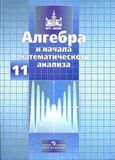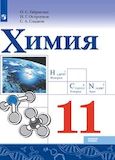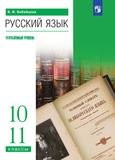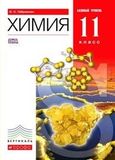Упр.2 Юнит 4 Урок 15-16 ГДЗ Happy English Кауфман 11 класс
2 Прочитайте историю и выберите правильные ответы.
1. Конечной целью профессора было
а) доказать, что Бога на самом деле не существует.
b) развлечь своих учеников.
c) доказать, что Бог создал зло.
2. Один из студентов отметил, что
а) тепло - это отсутствие холода.
b) холод- это отсутствие тепла.
c) холод дан Богом.
3. Молодой студент также утверждал, что
а) свет – то же самое, что и тепло
b) свет есть Бог
c) тьма – это отсутствие света.
4. Наконец, молодой студент утверждал, что
а) зла не существует.
b) Бог не дьявол.
c) зло - это отсутствие света.
После того, как профессор университета решил продемонстрировать пример чистой логики своим студентам. Он заинтриговал их, задав вопрос, является ли Бог злом и обещал дать положительный ответ и доказать это.
Поэтому он спросил одного из студентов: «Разве Бог создал все, что существует?" Студент смело ответил: "Да, это он!" "Бог создал все?" спросил профессор. "Да, сэр", ответил студент. Тогда профессор ответил: «Если Бог создал все, значит, Бог создал зло, так как зло существует. И, как мы знаем, наши дела определяют, кто мы, значит, Бог есть зло". Студент притих, и Профессор был очень доволен собой. Он пошел еще дальше, утверждая, что этот пример легко доказал, что вера в Бога была заблуждением. Молодой студент поднял руку и сказал «Могу я задать вам вопрос, профессор?" "Конечно," ответил профессор. Студент поднялся и спросил «Профессор, а холод существует?" Профессор выглядел немного запутанным. "Конечно, он существует. Почему вы спрашиваете?"
Другие студенты начали хихикать на глупость молодого человека. Студент, однако, продолжал: "На самом деле, сэр, холода не существует. В соответствии с законами физики, то, что мы считаем холодом, в действительности является отсутствием тепла. Таким образом, мы создали слово «холодно», чтобы описать, как мы чувствуем себя при отсутствии тепла. "Аудитория замолчала и студент продолжил: "Профессор, а темнота существует?" "Конечно, да" профессор пробормотал. Студент был готов к этому. "Я вынужден сказать, что вы неправы, сэр. Темноты также не существует. Темнота - это лишь отсутствие света. Мы можем изучить свет, но не темноту. Вы не можете измерить ее. Как вы можете узнать, насколько темным является какое-либо пространство? Вы измеряете, какое количество света в нем. Разве вы не согласны? " И тогда молодой человек вернулся к первоначальному вопросу. "Таким образом, зло существует, сэр?" Совершенно запутавшись, профессор не хотел отступать, поэтому он сказал: "Кто-то сомневается? Мы видим его повсюду. Преступности, насилия, войны реальность нашей повседневной жизни. Разве это не то, что мы подразумеваем зло? "
Тем не менее, студент ответил на это. "На самом деле, зло не существует, и, конечно, Бог не создавал его. Зло это слово, которое мы нашли для отсутствия Бога. Оно похоже на темноту, которое является отсутствием света, а холод отсутствием тепла. Зло происходит, когда у человека нет Бога в сердце своем". Профессор вышел из класса в тишине. Имя молодого студента было Альберт Эйнштейн.
Решение #
1. The ultimate aim of the professor was
a) to prove that God in fact doesn't exist.
b) to amuse his students.
c) to prove that God created evil.
1. Конечной целью профессора было
а) доказать, что Бога на самом деле не существует.
b) развлечь своих учеников.
c) доказать, что Бог создал зло.
2. Один из студентов отметил, что
2. One of the students pointed out that
a) heat is the absence of cold.
b) cold is the absence of heat.
c) cold is given by God.
2. Один из студентов отметил, что
а) тепло - это отсутствие холода.
b) холод- это отсутствие тепла.
c) холод дан Богом.
3. The same young student also claimed that
a) light is the same as heat
b) light is God
c) darkness is the absence of light.
3. Молодой студент также утверждал, что
а) свет – то же самое, что и тепло
b) свет есть Бог
c) тьма – это отсутствие света.
4. Finally, the young student argued that
a) evil doesn't exist.
b) God isn't the Devil.
c) evil is the absence of light.
4. Наконец, молодой студент утверждал, что
а) зла не существует.
b) Бог не дьявол.
c) зло - это отсутствие света.
Приведем выдержку из задания из учебника Кауфман 11 класс, Титул:
2 Read the story and choose the right answers.
1. The ultimate aim of the professor was
a to prove that God in fact doesn't exist.
b to amuse his students.
c to prove that God created evil.
2. One of the students pointed out that
a heat is the absence of cold.
b cold is the absence of heat.
c cold is given by God.
3. The same young student also claimed that
a light is the same as heat
b light is God
c darkness is the absence of light.
4. Finally, the young student argued that
a evil doesn't exist.
b God isn't the Devil.
c evil is the absence of light.
Once a university professor decided to demonstrate an example of pure logic to his students. He intrigued them by asking whether God was evil and promised to give a positive answer and prove it.
So he asked one of the students, "Did God create everything that exists?" The student bravely replied, "Yes, he did!" "God created everything?" the professor asked. "Yes, sir," the student replied. Then the professor answered, "If God created everything, then God created evil, since evil exists. And, as we know, our works define who we are, thus God is evil." The student became quiet and the professor was quite pleased with himself. He went even further claiming that this example easily proved that faith in God was a delusion.
A young student raised his hand and said, "Can I ask you a question, professor?" "Of course," replied the professor. The student stood up and asked, "Professor, does cold exist?" The professor looked a bit confused. "Of course it exists. Why do you ask?"
The other students started to giggle at the young man's stupidity. The student, however, went on, "In fact, sir, cold does not exist. According to the laws of physics, what we consider cold is, in reality, the absence of heat. So we have created the word 'cold' to describe how we feel if we have no heat." The audience fell silent and the student continued, "Professor, does darkness exist?" "Of course, it does," the professor muttered. The student was ready for that. "I'm sorry to say you are wrong again, sir. Darkness does not exist either. Darkness is only the absence of light. We can study light, but not darkness. You cannot measure it. How can you know how dark a certain space is? You measure the amount of light in it. Don't you agree?" And then the young man returned to the original questions. "So, does evil exist, sir?" Totally confused, the professor didn't want to back down, so he said, "How can anyone doubt it? We see it everywhere. Crime, violence, wars are the reality of our everyday life. Isn't tht what we mean by evil?"
However, the student had an answer for that. "In fact, evil does not exist, and certainly God didn't create it. Evil is the word we found for the absence of God. It is just like darkness is the absence of light and cold is the absence of heat. Evil is what happens when man does not have God in his heart." The professor left the room in silence. The young student's name was Albert Einstein.
Популярные решебники 11 класс Все решебники
*К сожалению, временные проблемы с публикацией комментариев с мобильных устройств.





